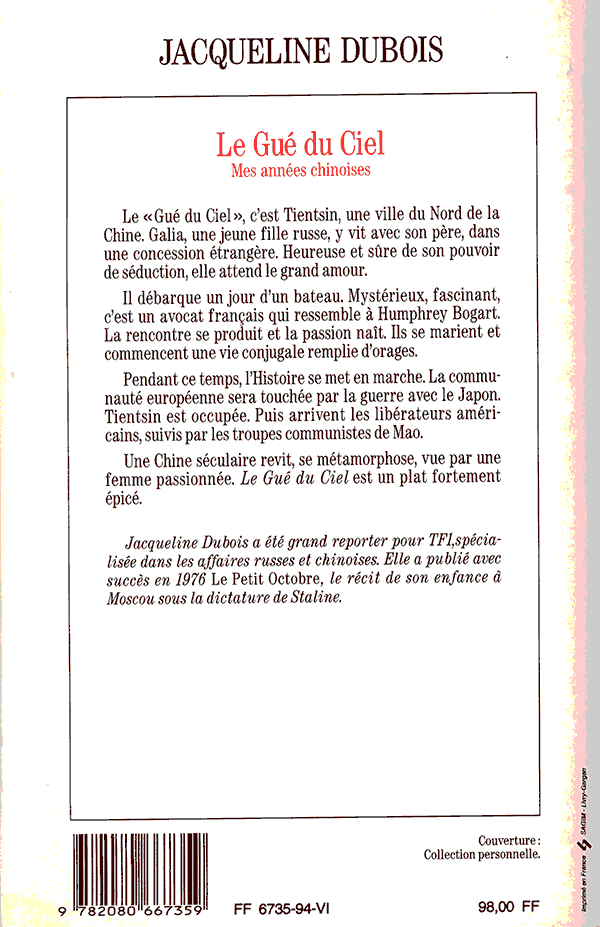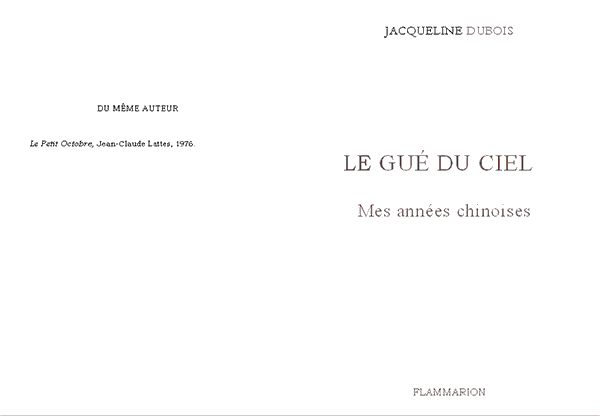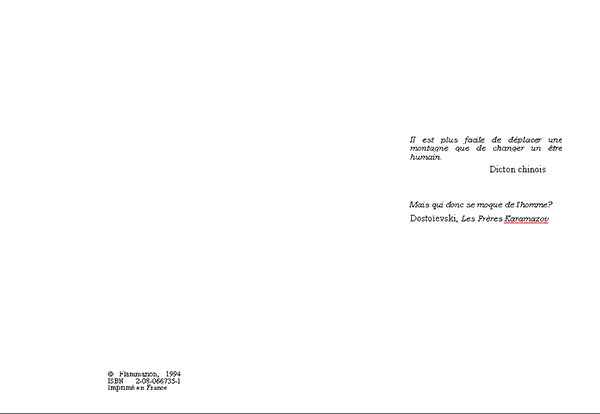



| pour la suite, |
|
From: Albert de Zutter
Sent: Sunday, May 17, 2009
I read most of the text you provided. While the story of her marriage and subsequent disappointment is interesting, I found what she was told about the Weihsien camp questionable. If we had a "tennis club," I didn't know about it. Yes, we played tennis, and we even had some tournaments, but we played with bald tennis balls and cracked rackets and had to tie pieces of cat-gut together with knots around to restring rackets. But beauty parlors? Come on! It sounds like she was recounting Japanese propaganda. And not a word about the gaoliang for breakfast and the "stew" -- which was no more than a thin soup -- and hot water for lunch and supper, and the fact that all but those who worked in the kitchens were underweight and malnourished (I was assigned by Dr. Chang to eat in the hospital for two weeks because of my emaciated condition). I concede that the Japanese were looking to the future, as she reports, and that they treated us at Weihsien better than they treated people at many other camps, but there was also some unnecessary meanness, as Joyce Cooke Bradbury reports -- dumping the meat supply on the ground and not allowing our people to deal with it until it started to spoil, etc. I'm sure we are all grateful that our guards were told there might be a reckoning after the war and that they should avoid atrocities -- which they did. But the conditions at Weihsien in no way resembled those at a vacation resort, as the author claims.
Sent: Sunday, May 17, 2009
I read most of the text you provided. While the story of her marriage and subsequent disappointment is interesting, I found what she was told about the Weihsien camp questionable. If we had a "tennis club," I didn't know about it. Yes, we played tennis, and we even had some tournaments, but we played with bald tennis balls and cracked rackets and had to tie pieces of cat-gut together with knots around to restring rackets. But beauty parlors? Come on! It sounds like she was recounting Japanese propaganda. And not a word about the gaoliang for breakfast and the "stew" -- which was no more than a thin soup -- and hot water for lunch and supper, and the fact that all but those who worked in the kitchens were underweight and malnourished (I was assigned by Dr. Chang to eat in the hospital for two weeks because of my emaciated condition). I concede that the Japanese were looking to the future, as she reports, and that they treated us at Weihsien better than they treated people at many other camps, but there was also some unnecessary meanness, as Joyce Cooke Bradbury reports -- dumping the meat supply on the ground and not allowing our people to deal with it until it started to spoil, etc. I'm sure we are all grateful that our guards were told there might be a reckoning after the war and that they should avoid atrocities -- which they did. But the conditions at Weihsien in no way resembled those at a vacation resort, as the author claims.
Albert de Zutter
